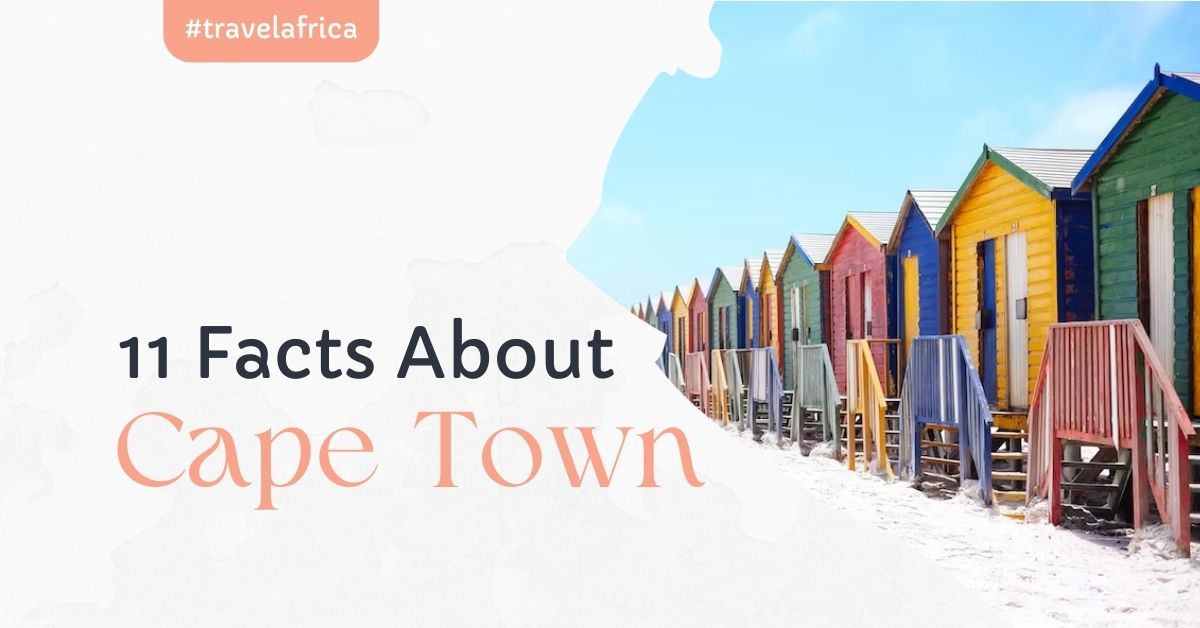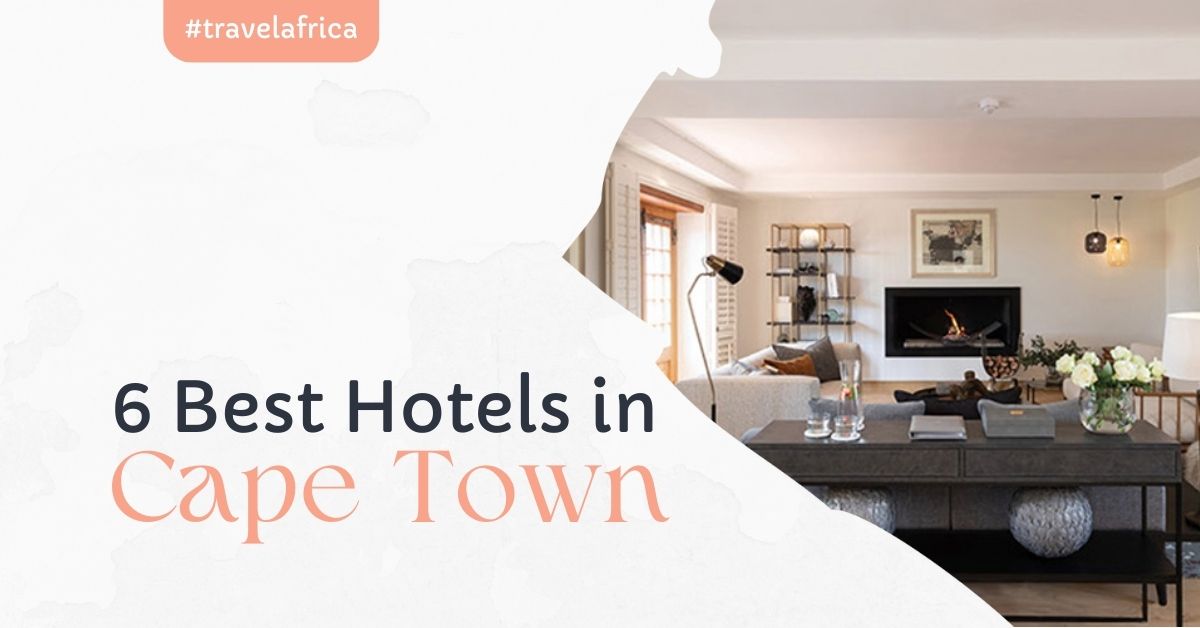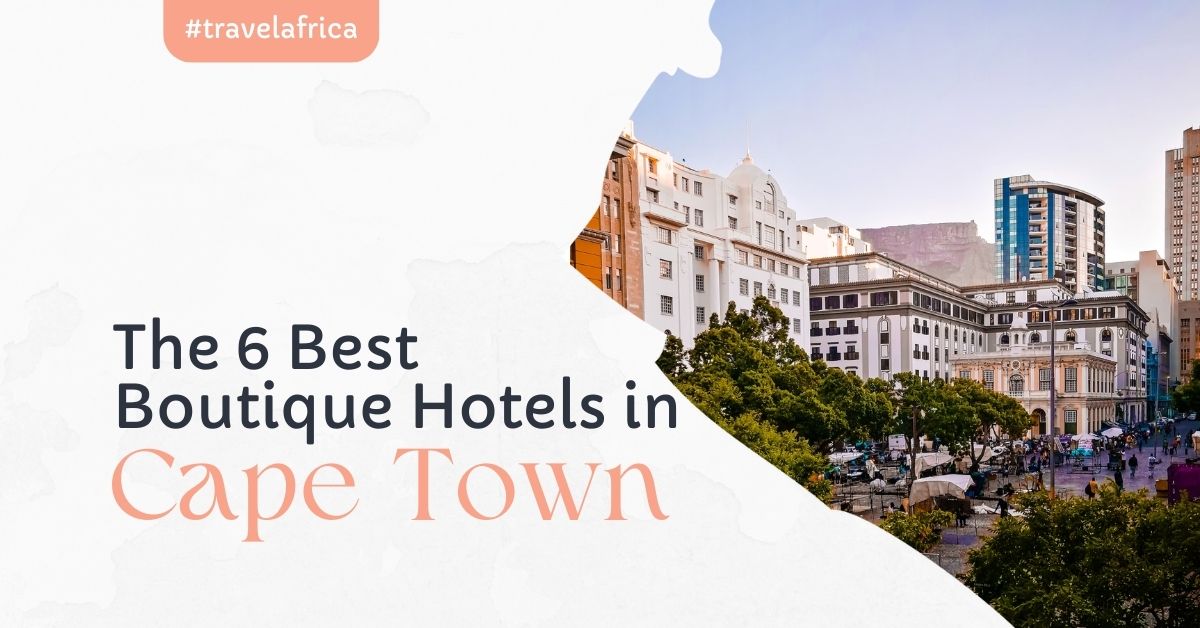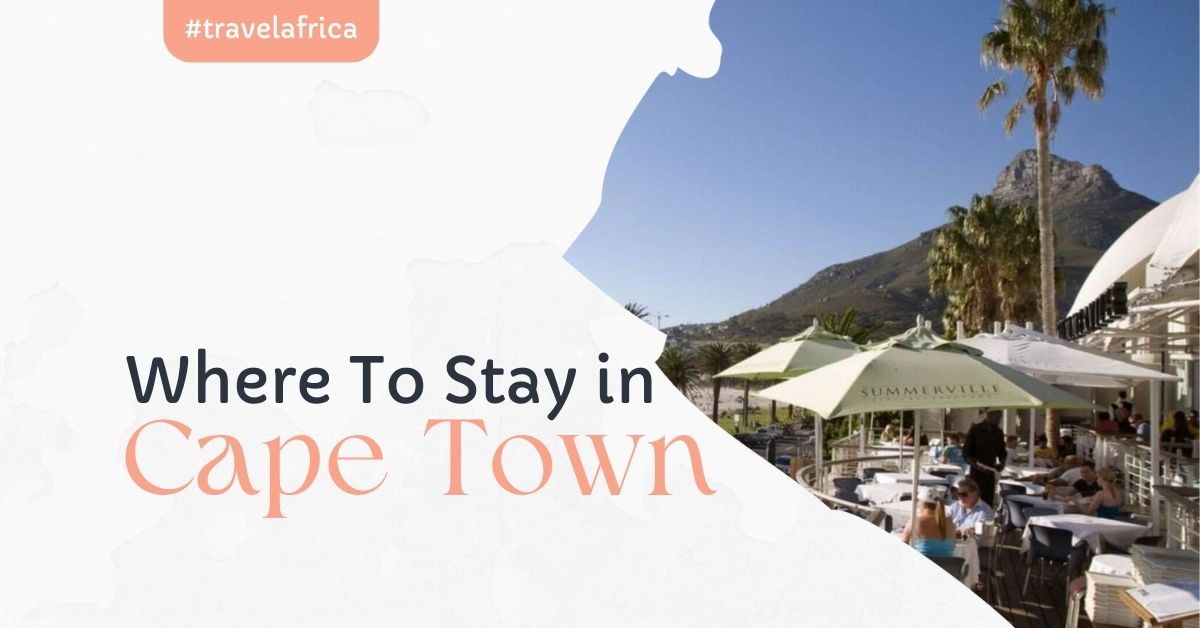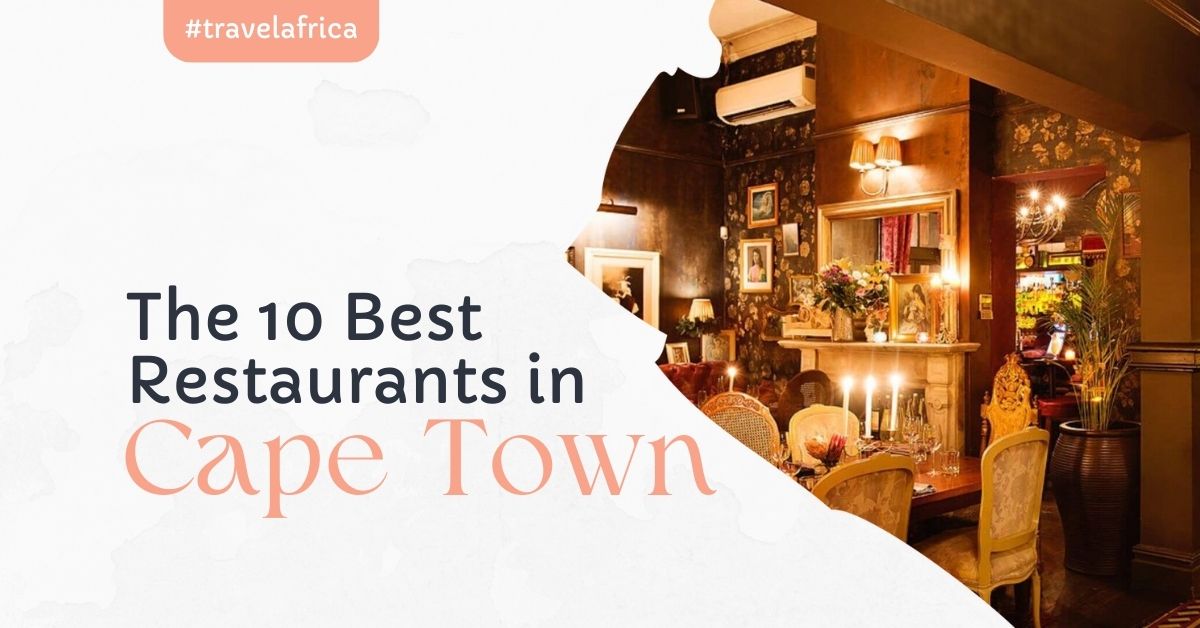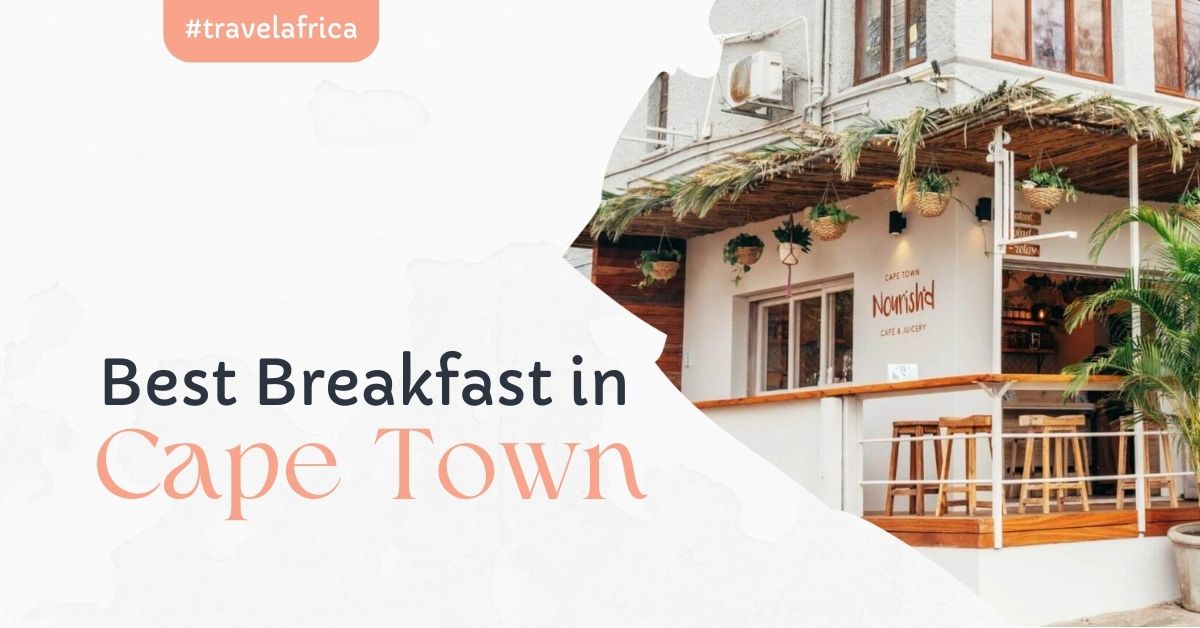Located on the southern tip of Africa, Cape Town stands as a beacon of natural beauty and cultural diversity. Flanked by the freezing Atlantic Ocean and watched over by Table Mountain, Lion’s Head and Devil’s Peak, there’s no other city like it in the world (trust me, I’ve been around!).
The City of Cape Town has a rich history and has evolved over the years to become a modern and cultural hub of restaurants, museums, gardens, hikes, beaches and events.
If you’re planning a trip here (which you should!), you should probably know some facts about Cape Town – which is why I’ve compiled this fascinating, fun and factual dive into the Mother City.
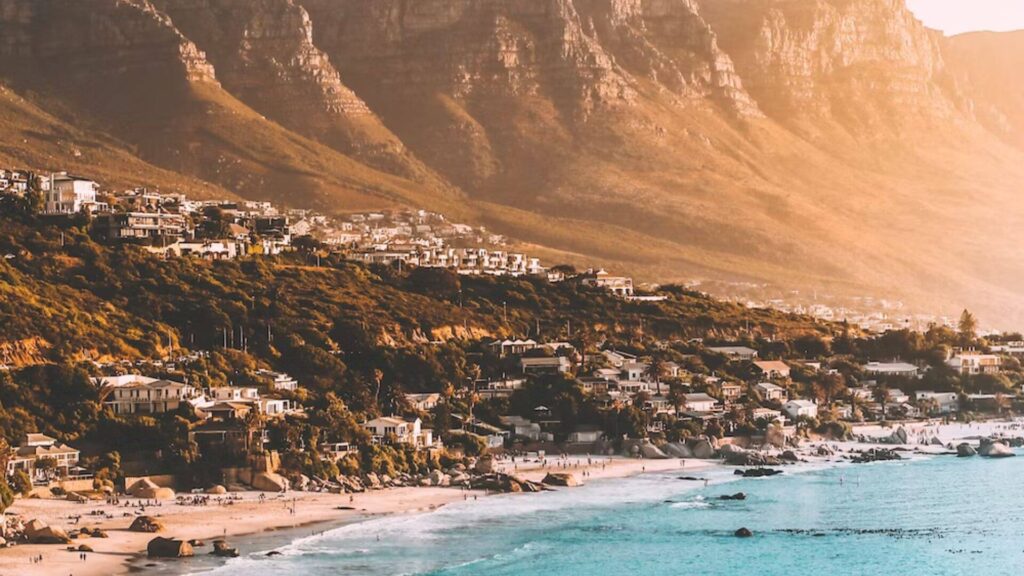
Table of Contents
- 1 1. Why Cape Town Is Called The “Mother City”
- 2 2. Cape Town Is Home To The Oldest Colonial Building In South Africa
- 3 3. Cape Town Is Also Home To The Oldest Garden
- 4 4. Table Mountain Is A Natural Wonder
- 5 5. Cape Town Reclaimed The Sea
- 6 6. Not One, But TWO World Heritage Sites
- 7 7. There Are Penguins In Cape Town
- 8 8. A Cannon Fires Every Day At Noon
- 9 9. Cape Town Is A Dream For Foodies And Sommeliers
- 10 10. Hollywood At Home
- 11 11. Everyone Is Into Sports
- 12 FAQs
1. Why Cape Town Is Called The “Mother City”
No, it is not because it embraces you with its wonder as soon as you arrive (although it does that too)… The City of Cape Town is called the “Mother City” because it was the first European settlement in South Africa.
The Dutch East India Company arrived in Cape Town in 1652, when the settlement was developed to supply and trade with passing ships. The Dutch farmers quickly spread out across the region (sometimes at the cost of the local’s lives) and so Cape Town became established.
Prior to the arrival of the Dutch East India Company, the area was named “The Cape of Storms” by Bartholomeu Dias in 1488 and was later renamed the “Cape of Good Hope” by John II of Portugal.
2. Cape Town Is Home To The Oldest Colonial Building In South Africa
Speaking of the Dutch East India Company, it is thanks to them that Cape Town has bragging rights to the oldest colonial building in the country and one of the only forts – the Castle of Good Hope.
The Dutch settlers built the Castle of Good Hope between 1666 and 1679 on the shores of Table Bay.
This massive undertaking was because of rising tensions between Britain and the Netherlands. The very first stone was laid on January 2 1666 and the five bastions were finally completed after 13 painstaking years of building.
Since then, the castle has seen some upgrades. A bell tower was added (the original bell remains the oldest in the country) in the front, a new entrance was constructed, balconies were added, and during the Second Boer War (1899 – 1902) one of the castle’s sections even served as a prison.
Today, you’re able to visit the Castle and experience a crucial piece of Cape Town and its past for yourself.
3. Cape Town Is Also Home To The Oldest Garden
On the topic of the oldest things, I have to mention the Company’s Garden.
I’ve walked past the planetarium and doors of the Iziko Museums many times, strolling into the gorgeous and well-kept gardens. Dodging the aggressive pigeons and friendly squirrels, I can aimlessly wander around this serene city and escape for hours.
My first time here I didn’t know a lot about the history of the place – I kind of just thought of the Company’s Garden as something akin to Central Park in New York (a big green space in the middle of a city). But, when I stumbled upon the ancient tree, surrounded by a fence and held up by supporting poles, I became interested in the history of the place.
Turns out that wise, old tree is possibly the very first cultivated tree in the country – a Saffron pear tree planted in 1652! The garden itself was also cleared and prepared for sowing by the Dutch East India Company in the same year.
The original purpose of the gardens was to grow vegetables and crops for passing ships. Today it is a green paradise in the heart of the city (although there are still some edible veggie plants growing in one section!).
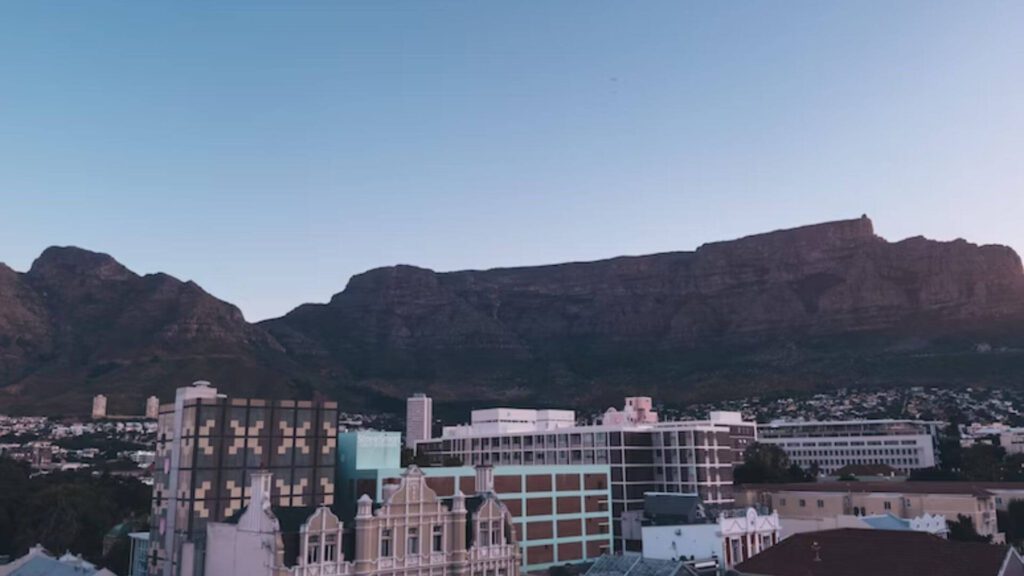
4. Table Mountain Is A Natural Wonder
I can’t write about Cape Town and not mention the very first thing you see when you arrive: Table Mountain.
Not only is this flat-topped mountain an actual natural wonder to look at from afar but it has also been named one of the New 7 Wonders of Nature – right in Cape Town!
The plateau at the top of the mountain stretches for 3 kilometres from side to side, with sheer cliffs tumbling down into the ocean on one side and the city spreading into the distance on the other.
Of course, Table Mountain only looks flat on top. When you reach the top you are in for some rock-scrambling awkward protrusions, and you might even stumble upon one of the three dams!
Because of the howling south-easterly wind in summer that enjoys knocking cyclists off their bikes, Table Mountain is often covered with a thick cloud blanket, considered the “table cloth”. Legend has it that this frequent cloud covering is because of the Devil and Van Hunks the pirate – they are having a smoking contest up there!
If you want to admire Table Mountain from the top, you can easily take the cable car. Or, make it a challenge and hike up one of the gorges that are etched into the mountain – just get ready for lots of steep steps! I’ve climbed up Platteklip Gorge before but my knees were so wobbly at the top I decided to take a one-way ticket down with the cable car.
5. Cape Town Reclaimed The Sea
Looking at an aerial shot of the city now, you would think “Wow, what a perfectly planned out city with the harbour right by the CBD.”
But, what many people don’t realise is that big parts of Cape Town were once the ocean! The entire part known as the “Foreshore”, neighbouring the harbour, was very much part of the ocean until the 1940s when 194 hectares were reclaimed.
To put it into perspective – the ocean used to lap against the walls of the Castle of Good Hope.
But today there is Strand Street, the port, the railway station, the Artscape Theater, the Cape Town International Convention Centre and the Civic Centre, all where the sea once used to be.
6. Not One, But TWO World Heritage Sites
Many countries can’t even brag about having a single UNESCO World Heritage Site, and the City of Cape Town has two!
First, there is Robben Island. Robben Island has one of the most fascinating histories of all the places in Cape Town – from a breeding African Penguin colony to WWII guns, quarries, a leper colony graveyard and underground bunkers. But most notably, the reason why most people have heard about it is because of the maximum security prison for political prisoners.
Robben Island has a somber history as those who were considered socially undesirable were sent here. And despite its dark and horrid past, today it is seen as a symbol of triumph in Cape Town to many because of Nelson Mandela.
The prison housed political activist-turned-president Nelson Mandela for 18 years before the fall of apartheid in 1994. It was declared a World Heritage Site in 1999. Today, Robben Island is one of the most visited tourist destinations in the city.
The second UNESCO World Heritage Site in Cape Town is the Cape Floral Region Protected Area. The fynbos biome is considered a biodiversity hotspot because of the high number of endemic floral species in a small area.
The Protected Area contains more than 500,000 ha of indigenous plant life, and you can catch a glimpse of this incredible biodiversity in Kirstenbosch Gardens on the flanks of Table Mountain.
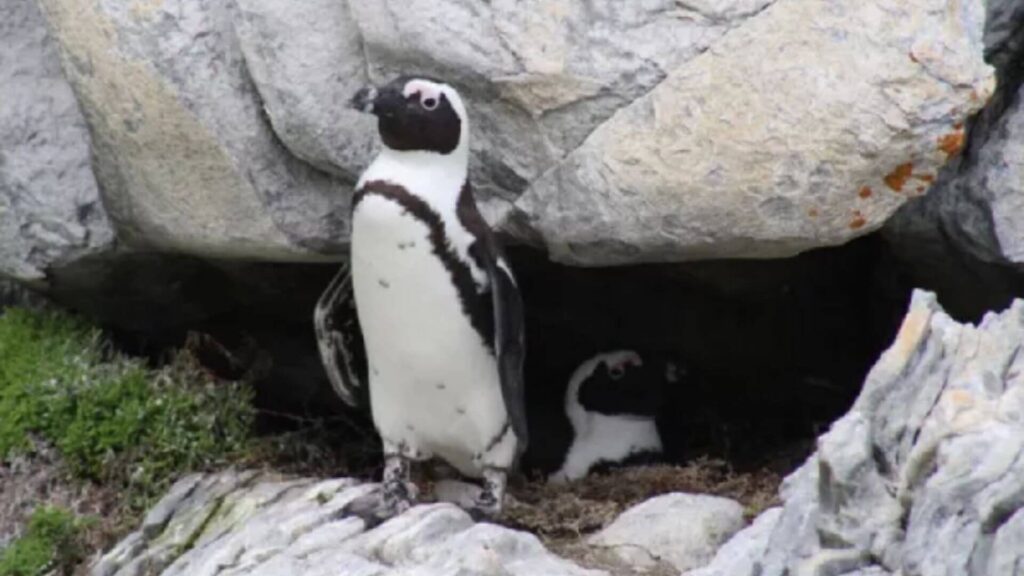
7. There Are Penguins In Cape Town
I briefly teased you with the mention of a penguin colony in Cape Town, so now it is time to get into the details.
Yes, Cape Town has penguins. No, it’s not the same ones you saw on Happy Feet.
Cape Town and its surroundings are home to a couple of breeding colonies of the indigenous African Penguin or Black-Footed penguin (previously called the Jackasspenguin because of their seriously loud and annoying donkey-like braying).
These pint-sized penguins can be seen on Robben Island and just past Simon’s Town at Boulders Beach (you can swim with them here if you can brave the cold waters). Don’t let their small size fool you though, they are wildly protective of their nests and those beaks are incredibly sharp!
Further afield you can spot them swimming around Dassen Island near Yzerfontein (90 km north of the city), and there is even an ongoing project of establishing a new penguin colony at De Hoop Nature Reserve (250 km from Cape Town)!
If you don’t feel like a drive, the Two Oceans Aquarium in the V&A Waterfront (right in Cape Town) also has a couple of African and Rockhopper Penguins that you can get up close to. Or, you can head over to SANCCOB (a seabird rehab facility 2 km outside of Cape Town) and learn more about the incredible conservation work that is going into protecting this endangered species.
8. A Cannon Fires Every Day At Noon
Don’t get a fright when you hear a loud boom around lunchtime, that’s just the Noon Gun firing on top of Signal Hill!
The Noon Gun has been around since 1806 but was only moved to Signal Hill around 1902 after residents claimed the in-town guns were too loud.
It is actually two Dutch naval powder guns (what you picture when you think of a cannon) that are shot alternately each day. The Noon Gun was historically used to announce the time, which allowed ships in port to calibrate their marine chronometers (tools used to determine longitude). Even ships that were docked further away could use the smoke from the guns since they knew sound took a while to travel.
Today, the gun is still fired each day precisely at noon (thanks to the master clock at the South African Astronomical Observatory) and can be heard as far as Parow in the northern suburbs.
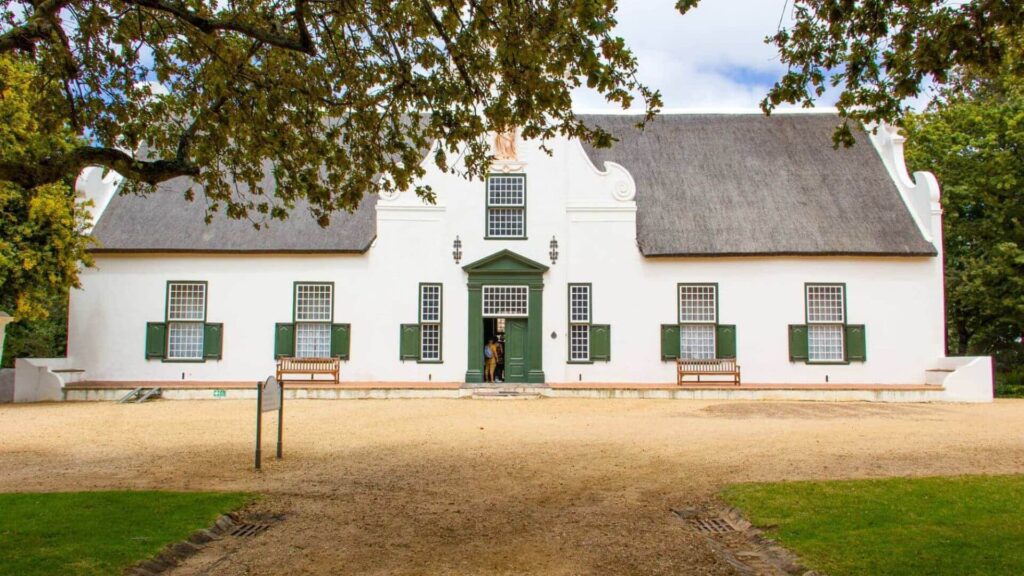
9. Cape Town Is A Dream For Foodies And Sommeliers
Cape Town is definitely the culinary capital of the country.
First things first: wine.
Route 62 is the longest wine route in THE WORLD at 850 kilometres, and Cape Town sits perfectly at the beginning as it winds through the southern parts of the country all the way to Port Elizabeth. There are dozens of wineries along this route, and even though I’ve sampled a few along the Garden Route, Cape Town’s wine farms remain my favourite.
From the gorgeous views at Groot Constantia to the understated elegance at De Grendel outside of the city, you are sure to find a bottle to your liking.
And what goes perfectly with wine? Food!
Cape Town is a culinary delight, offering international cuisine, Michelin Star restaurants and local flavours. Wolfgat, located 2 hours north in Paternoster, was declared the best restaurant in the world in 2019 and is an easy day trip from the city (bookings essential and way in advance!).
But you don’t have to travel that far to find good food. There is a hidden gem and foodie paradise around almost every corner.
10. Hollywood At Home
No, I’m not referencing the incredible Afrikaans movie from 2015, Hollywood in my huis. I am referring to Cape Town being considered as the Hollywood of South Africa thanks to the booming film industry in the city.
From gorgeous locations to incredible production companies, Cape Town is home to amazing creatives who have helped to create some of the biggest Hollywood hits. According to a study commissioned by the City of Cape Town municipality, the film industry contributes R5 million to the local economy, providing 35,000 jobs.
Some notable films and series that were shot locally include:
- Raised by Wolves
- Chronicle
- Bloodshot
- Black Sails
- Mad Max: Fury Road
- Black Mirror
- Dredd
- One Piece
11. Everyone Is Into Sports
Okay, not everyone is into sports, but if you go into any coffee shop in the morning I’m sure you will come across a surfer, trail runner or cyclist popping in for a caffeinated drink.
Thanks to the closeness of the mountain and the sea, the City of Cape Town is a hub for those who enjoy outdoor sports.
Cape Town is home to the largest timed cycle race in the world, the Cape Town Cycle Tour. This road cycle race sees cyclists pedalling 109 km up mountain roads and along the iconic Chapmans Peak drive to test their endurance.
And I can’t mention sports in Cape Town without mentioning the waves. Not only are portions of Cape Town a surfer’s dream (Muizenberg is especially popular), but the pumping wind means that kite- and windsurfing is huge here. Cape Town even hosts the annual Red Bull King of the Air windsurfing competition that draws international pros.
Of course, hikers and trail runners are also everywhere. I’ve never hiked up Lion’s Head or Table Mountain without running into a group of trail runners sweating it out on the ridges.
FAQs
What’s the best time of year to visit Cape Town?
Cape Town is actually a year-round destination. Summer months (November – February) offer warm days with plenty of sunshine, although the wind can blow quite fiercely during summer. Winter (June – August) may have wet days, but it’s the best time to spot whales along the coast.
Is Cape Town accessible to international visitors?
Definitely! Cape Town International Airport is a short drive from the city centre and is connected to several international destinations. The city has safe public transport in terms of the My Citi bus and there are also Uber drivers and car rentals to help international visitors get around.
Are there local customs and etiquette that visitors to Cape Town should be aware of?
It is always good to understand the customs when visiting a new city. Although Cape Town is cosmopolitan – a melting pot of cultures, races and ethnicities – it’s good to show respect for local traditions. Tips are not included on your bill, but it is customary to tip at least 10% when eating at a restaurant. Saying hello (or “howzit” in local slang) also goes a long way when interacting with the locals.
